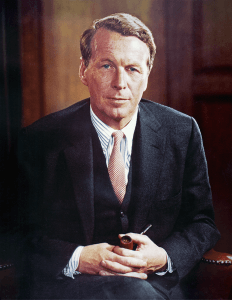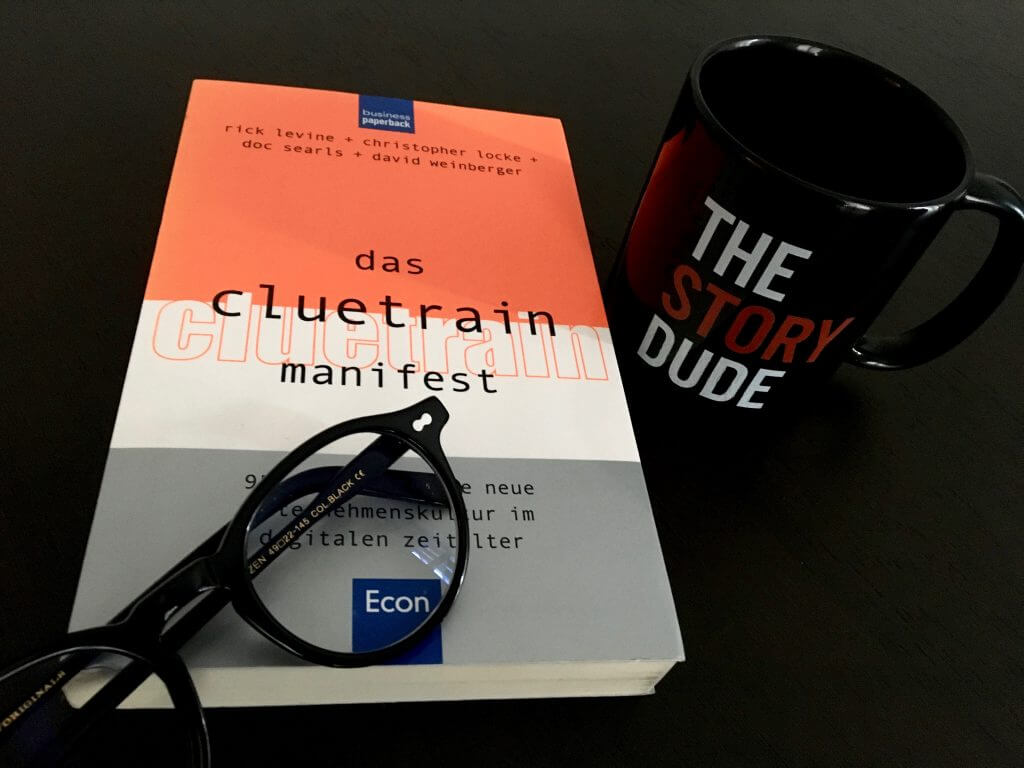A question that is often asked in the marketing and advertising parlours is: "What can we find out about Millennials so that we can sell our products to them better?" - I have a simple answer to that: Millennials hate brands that try to sell them something.
And in this, the coveted Generation Y is no different at all from Generation Z or Generation X or anyone else. The Ys are only the first generation to really fight back, thanks to the grace of their well-timed birth as digital natives, because good uncle Tim Berners Lee gave them a wonderful gift on 6 August 1991 when he put the first website online.
Of course, no one knew what that meant at the time. How could they? You couldn't ask Siri or Alexa. And you couldn't Google it either, not even on Yahoo.
Strictly speaking, everyone knew what was going on long ago, because it was already written down by two members of the Mad Man generation in the golden 60s, when advertising was still called advertising. David Ogilvy brought the beautiful insight: "The customer is not a moron. She's your wife.", and Howard L. Gossage shared the sentence: "Addressed as a human being, rather than as a consumer, people are actually capable of buying."
Still nothing new in the West, so.

New, it wasn't in 1991, but as you can see from the countless push-push-shout-me-at-every-opportunity-with-buy-me! campaigns, it still hasn't arrived in the advertising world. What is new, however, and becoming newer every day because it is more topical and acute, is that people are flocking to take shelter from these practices.
Once upon a time, there was man.
Recently, the global advertising giant WPP (which also owns the Ogilvy agency) lowered its sales expectations. And a survey of the most popular professions in Germany showed that advertisers were the only ones who managed to become less popular over the year. They ranked second to last in the popularity ranking, ahead of insurance agents. Both professions traditionally leave no stone unturned to live up to their cliché: Buy me!!!

One can almost understand it as a continuation of the thoughts quoted above, which was described by the US-Americans Rick Levine, Christopher Locke, Doc Searls and David Weinberger in the Cluetrain Manifesto : "We are not seats or eyeballs or end users or consumers. We are human beings and our reach exceeds your grasp. Deal with it."
Are we finally having a conversation?
The Cluetrain Manifesto defined in 1999 - and in 2015 in an update as New Clues - the relationship between companies and their customers in the age of the internet. Here is a significant outline of the content of the 95 theses:
A powerful global conversation has begun. Through the Internet, people are discovering and inventing new ways to share relevant knowledge with blinding speed. As a direct result, markets are getting smarter, ...and getting smarter faster than most companies.
These markets are conversations. Their members communicate in language that is natural, open, honest, direct, funny and often shocking. Whether explaining or complaining, joking or serious, the human voice is unmistakably genuine. It can't be faked.
Most corporations, on the other hand, only know how to talk in the soothing, humourless monotone of the mission statement, marketing brochure, and your-call-is-important-to-us busy signal. Same old tone, same old lies. No wonder networked markets have no respect for companies unable or unwilling to speak as they do.
But learning to speak in a human voice is not some trick, nor will corporations convince us they are human with lip service about "listening to customers". They will only sound human when they empower real human beings to speak on their behalf.
While many such people already work for companies today, most companies ignore their ability to deliver genuine knowledge, opting instead to crank out sterile happytalk that insults the intelligence of markets literally too smart to buy it.
However, employees are getting hyperlinked even as markets are. Companies need to listen carefully to both. Mostly, they need to get out of the way so intranetworked employees can converse directly with internetworked markets.
Corporate firewalls have kept smart employees in and smart markets out. It's going to cause real pain to tear those walls down. But the result will be a new kind of conversation. And it will be the most exciting conversation business has ever engaged in.
What may seem like the end of the world for the old-fashioned advertisers is actually the description of a paradise for all those brands, companies and organisations that are serious about their audience and have understood where their opportunities and responsibilities lie. Already in the first six Cluetrain theses:
- Markets are conversations.
- Markets consist of human beings, not demographic sectors.
- Conversations among human beings sound human. They are conducted in a human voice.
- Whether delivering information, opinions, perspectives, dissenting arguments or humorous asides, the human voice is typically open, natural, uncontrived.
- People recognize each other as such from the sound of this voice.
- The Internet is enabling conversations among human beings that were simply not possible in the era of mass media.
Stories for Generation Why.
It's simple: if we as marketing communicators engage with our audience, participate in their conversation, initiate it, or make interesting contributions to it, then we can be, in the most positive sense, a natural and useful part of their lives.
Then we have meaning because we still come to the party uninvited, but we bring something that everyone likes and needs. What is that? It's different for every industry, every company and every brand, but it's the same for everyone: something meaningful. And if we do it well, we will even be invited to the next party.
We humans look for meaning in everything we do, even in the small, seemingly insignificant things. Mostly even subconsciously. For it is through meaning that we explain the world and our own lives to ourselves. That's how we find out who we are.
Evolution has given us a wonderful tool for this in the time of the change - not yet sufficiently completed by some - from Neanderthal man to Homo Sapiens: story. Our ability as Homo Narrans to find, invent and share stories. The building blocks for this are our values. This is how meaning is created.
Every one of us can do story, every one of us needs story. It is a substantial part of our humanity. We build stories, incessantly, day and night. What did you dream last night? I suspected it: a story. Confused stuff? You wonder about the meaning? No wonder, because we are the ageless generation WHY ...
The fat years are not over.
For all those who, in the face of declining forecasts for the advertising industry, despair of everything that has been sacred, dear and precious to us since Procter & Gamble invented marketing in the 1830s, here is comfort once again. The fat years are not over. The fat just comes in a different form, in the form of highly healthy unsaturated fatty acids full of nutrients for the imaginative.

The comforting words come from Don Draper's mouth: "There will be fat years, and there will be lean years, but it is going to rain."
Who am I to add anything to this? - Okay, maybe my favourite quote from my grandmother's flashcard, old Story Dudette: "No Story. No Glory."
